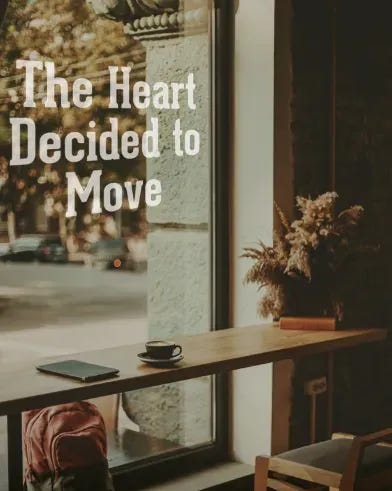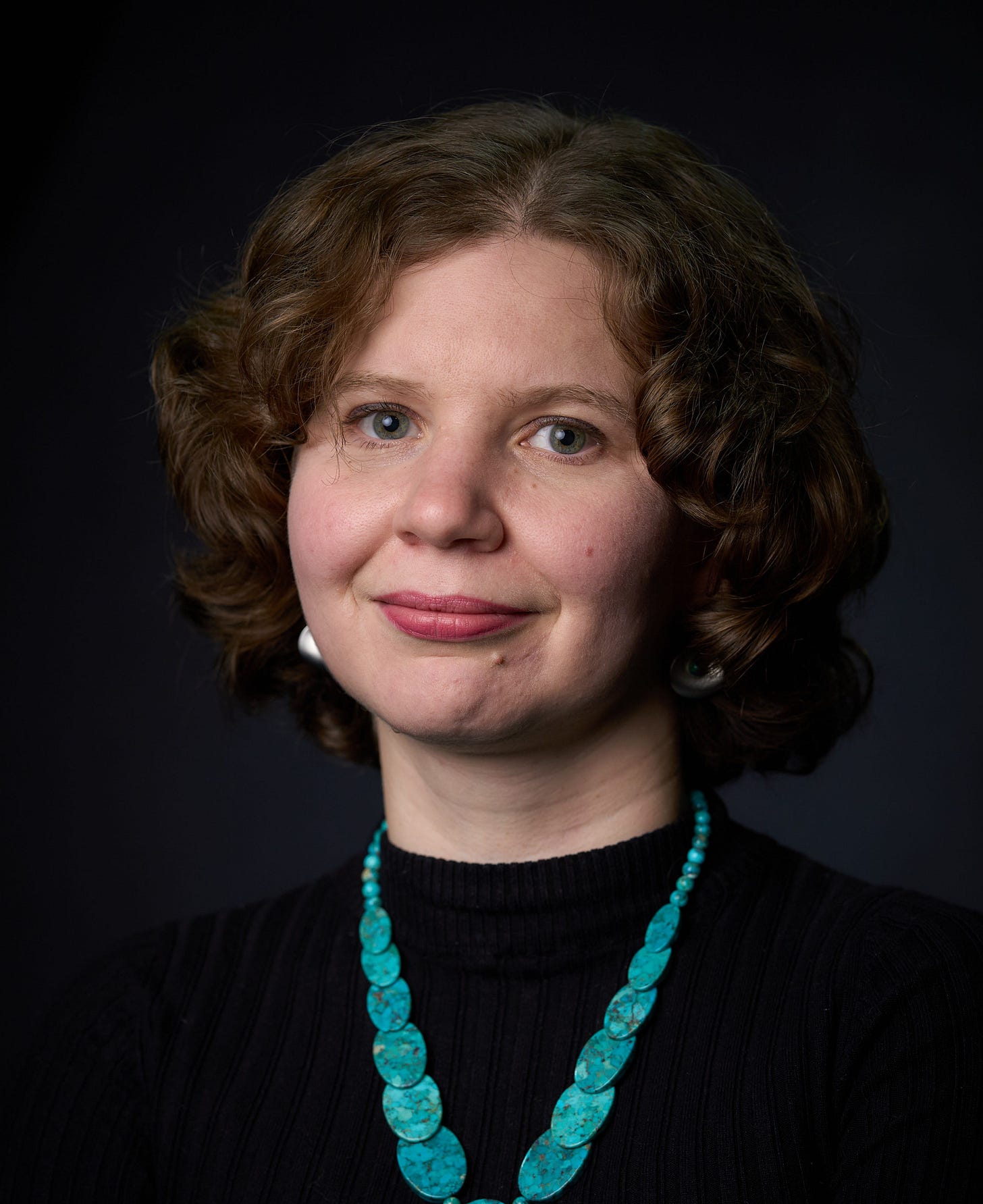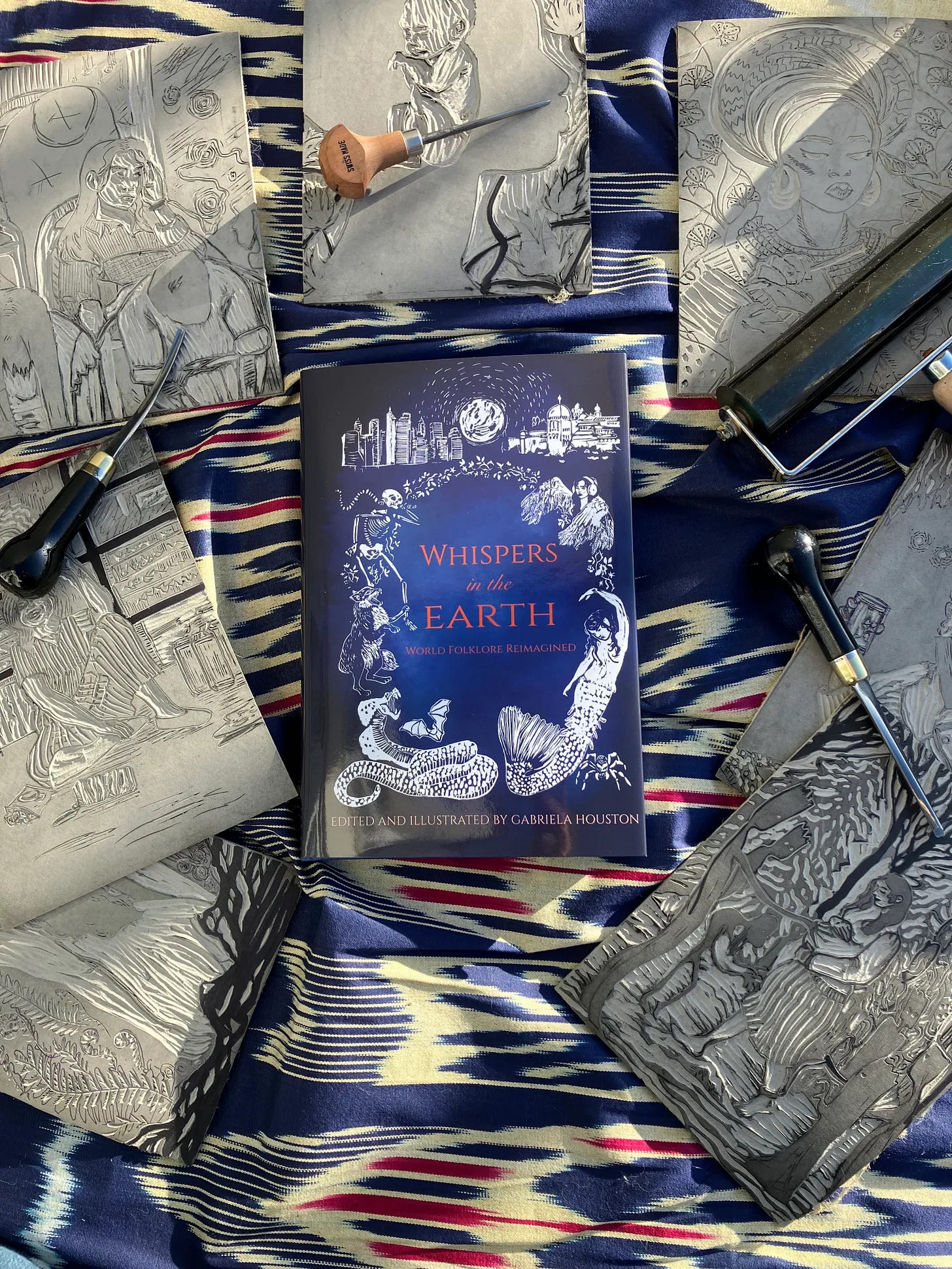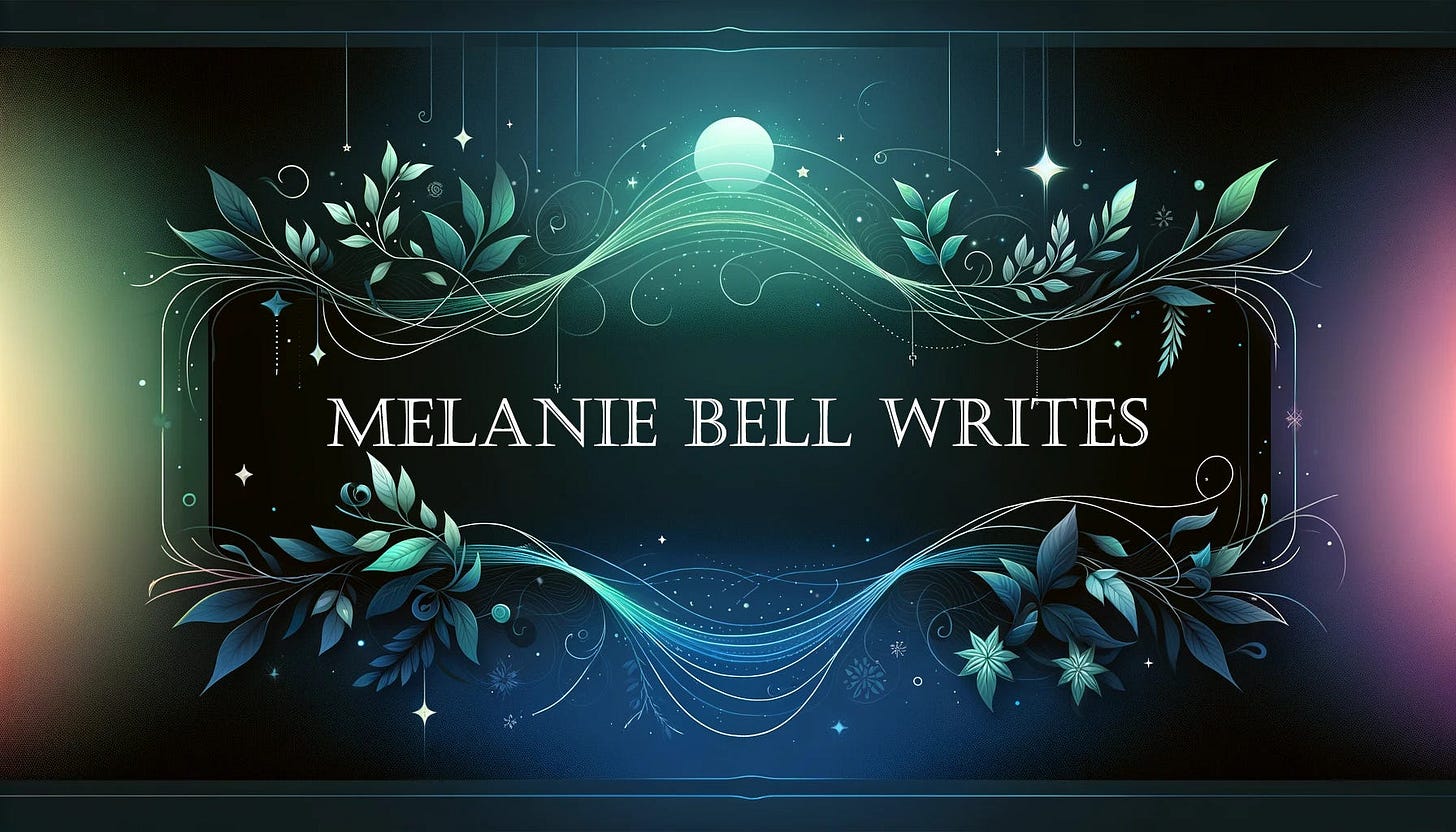Seeking Authenticity in a Lifetime of Culture Shock
An interview with writer, editor and UK transplant Melanie Bell
“In one day the buds unravel their calligraphy: This is not like home.” - Melanie Bell, “Wild Roses”
In slanted, cursive letters, my friend’s inscription to me reads, “Happy reading, fellow traveller.” Then, the dedication comes—“To immigrants around the world”—and I know this book will be a moving experience.
The inscription greets me on the title page of Melanie Bell’s recent collection of poems, letters and reflective prose, The Heart Decided to Move, which she also illustrated. The folklore-inflected collection is billed as “a poignant exploration of self-discovery,” and it delivers on its promise. Through short, accessible “snapshots,” we are with Melanie as she “think[s] [her] way around the world.” She resettles in the UK “in search of a true sense of belonging,” visits Inuvik (Northwest Territories), Bhutan and even the Underworld, and tries to find “Grace in the Time of the [Corona] Virus.” Along the way, she touches upon everything from the deadening effects of office work—all spreadsheets and “bland” apples, and the “remnants” of someone else’s birthday cake—to “the blockbuster thriller novel that never makes it onto posters in the States,” which I too noticed right away in the London Tube.
Writer and editor Melanie Bell and I share quite a bit in common:
We both graduated from an MA English program at Concordia University in Montreal (she in the Creative Writing stream), where we would cross paths at colloquiums, parties and popular watering holes, and chat in our study cubicles when we should have been diligently working. 🤫
We both moved to the UK from North America, Melanie in 2017 after living and working in San Francisco. She wanted to experience life ‘across the pond’ with her partner at the time when they found out she qualified for an Ancestry Visa.
We are lovers of “music, art, and nature,” as her bio reads, and we are wanderers who aspire to “see as much of the world” as we can.
“I’ve grown more venturesome, my steps less sure.” - “Nakay”
At a quick glance, here is a run through of some of her work:
Joan: The Musical—a play co-written with Hannah Doyle that takes a 72-year-old woman down the rabbit hole and into “a musical fever dream,” which I saw performed at the Brighton Fringe in May 2025—as well as previous short plays at the Tower Theatre and Barons Court Theatre in London, on Morley College Radio and in Liverpool’s 24 Hour Play Fest
Chasing Harmony, a coming-of-age novel featuring bisexual piano prodigy Anna Stern and told in alternating timelines on Prince Edward Island and Vancouver (featured on CLMP’s list of Children’s and YA Books of 2022)
Dream Signs, a multi-genre collection of short stories and a novella (“The Cliffman”) about realising dreams and “the triumph of landing where one’s heart desires”
The Modern Enneagram, a self-help book coauthored with Kacie Berghoef about how one’s personality type can influence everything from personal habits and professional interactions to ultimate growth
A Prince Edward Island ghost ship story in the Whispers in the Earth illustrated anthology of world folklore, as well as various fiction, poetry and articles with publications such as Contrary Magazine, The Huffington Post, Cicada, Every Day Fiction, Grain and The Fiddlehead.
After I wandered joyfully through the signed copy of her thought-provoking collection The Heart Decided to Move, Melanie graciously agreed to address some of my burning questions, as well as zoom through my Speed Walk questionnaire. Below is our interview.
“All sounds are complexity / circling.” - “Language Lessons”
The opening poem as well as the opening line of the collection mirror the title: “The heart decided to move.” The heart is personified here and there seems to be a negation, almost, of the speaker’s autonomy. What were you trying to get at?
The poem was written in response to a challenge by the late David Benedictus (author of The Fourth of June and Return to the Hundred Acre Wood) to the Brighton NightWriters group to “write a poem about the heart that isn’t sentimental.” My attempt ended up encapsulating more than that, including my own feelings of displacement and uncertainty. Sometimes it can feel like “the heart” is dragging me around!
In several pieces, you speak of rhyming. For instance, in “The Heart Decided to Move,” the heart calls a new flat “‘home’ to rhyme with ‘roam,’” and in “Fear” you write, “I fear my life’s a slowly waning rhyme whose passage spills too quickly out of hand.” You often write of this sense of echoing and “drift[ing],” of not knowing “if [the heart] will be here long.” After eight years in the UK, do you yourself still feel adrift? Settled? Something in between?
I feel somewhere in between. I moved thinking this might be a temporary adventure, but I’m used to being here now. I have connections, a job, and am mostly comfortable. At the same time, I miss Canada, and I feel uncertain about what the future holds, location-wise. “The heart” gets restless sometimes!
Often, it is unclear where we are in the world, a jumble of attempts and misattempts, making all lands—all spaces—seem foreign. Or perhaps, in a way, familiar? In pieces like “Homeward” you muse on comparisons and in “It is like that only” you write of commingling cultures: “In the Hindu temple, a cottage with Christmas lights and tacked-up paper gods, we gather in jeans to jingle hymns of Krishna.” What has been the most similar everywhere you have lived? The most different?
People and their complex feelings have similarities around the world, but the ways they express them differ in culturally interesting ways. I think we have some common needs, joys and sorrows. The people I met in Bhutan, Kenya, and the UK are just as entertained by a sing-along as the people I grew up with on Prince Edward Island, for example!
Loneliness runs like a rock layer through your work. And in “The Water Babies Amuse Themselves” you write, “I planted a water lily in the bath to keep myself company. Watched it bob between the atolls of my knees, rhizomes worm beneath me.” As though the self is a country; a citizenship of “I.” Do you think of yourself as a fundamentally lonely person? Where do you locate the most meaningful companionship?
This is an interesting reading. I wouldn’t have described myself as lonely. I deeply value having time to myself. I also value companionship, though, especially that of people I’ve met who like sharing experiences and talking about ideas.
“We’ve got too little left to lose / and just enough time to kill.” - “Objectives”
In "elegiac curls”—to steal a phrase from your poem “In the Den”—you write both of roving and of waiting, those who never go and those who can’t help but do so, and of creatures growing in the most “beslimed” of circumstances. Who do you think are happier: those who are able to leave or those who endeavour to stay?
It probably depends on the individual and their circumstances. Some people find moving around to be a source of anxiety (including me sometimes!), while others long for it (definitely me). Some people find meaningful connections and opportunities where they are, while others find them more easily elsewhere. I’d bet that privilege and life circumstances have more to do with happiness than staying or going.
How has each place you’ve written in or about shaped your writing? Do you have a specific example of this shaping?
I do! Growing up on Prince Edward Island, I was often inspired to write about the beauty of the rural landscape. When I went to graduate school in Montreal, my poetry became more surreal, edgy and abstract for a time. In London, I focused on the quotidian and how its details differed from what I was used to.
There is a shaggy quaintness, a sense of movement to your pencil drawings, which herald the various sections in the collection. How do you see the connection between your literary work and your illustrations?
I created a pencil illustration to open each thematic section of the book. I went through the sections looking for images in the poems that would make for interesting visuals. I ended up discarding a few sketch attempts that didn’t look right and settled on mostly simple, lively images, such as the tadpoles I observed in a nearby park or the spider plant I nursed during lockdown.
I am forever grateful to my nana, through whom I was able to get my Ancestry Visa to the UK. In your acknowledgements you thank “the ancestors who gave me the opportunities to experience so many parts of the world.” Can you say more about these ancestors? Who are they and how have they influenced your journey / adventures?
I’m part of four generations of moving between countries, and that’s what made an Ancestry Visa possible for me. One set of paternal great-grandparents moved from Scotland to New York, but my great-grandmother wanted to go back to “the homeland” to give birth to my grandfather. My parents immigrated from the US to Canada when I was a baby to run a greenhouse business. Because of all this moving around, I had both a UK-born grandparent and Commonwealth citizenship, which allowed me to apply for a UK Ancestry Visa and move to this part of the world!

What is next for you creatively?
I have a romance novella coming out in 2026 which started as my attempt at writing something comforting during lockdown. I’m working on a fantasy novel and another theatrical project.
“If it hadn’t been for this dance / in whose steps we faltered and failed, / I wouldn’t be here in this kitchen, / sunlight strong on my secondhand table, / enjoying this bite of French toast.” - Melanie Bell, “After the Breakup.”
In the UK, you have lived in Edinburgh, London and now Brighton. We’re going to take a Speed Walk with you around the UK and visit some of your standouts.
Place to people watch: The London Tube
Park to wander through: Royal Botanic Garden Edinburgh
Museum to savour: Royal Museums Greenwich
Spot to read: Preston Park Rose Garden in Brighton when the weather is nice
Pub / restaurant to frequent: Presuming Ed’s in Brighton, where a lot of brainstorming for Joan: The Musical happened
Most happening queer hangout: Brighton! The Pride festivities, though chaotic, are well worth checking out
British place name: Chipping Sodbury
Building or piece of architecture you’d most like to build out of LEGO: Portmeirion, the colourful Italian-inspired village in Wales
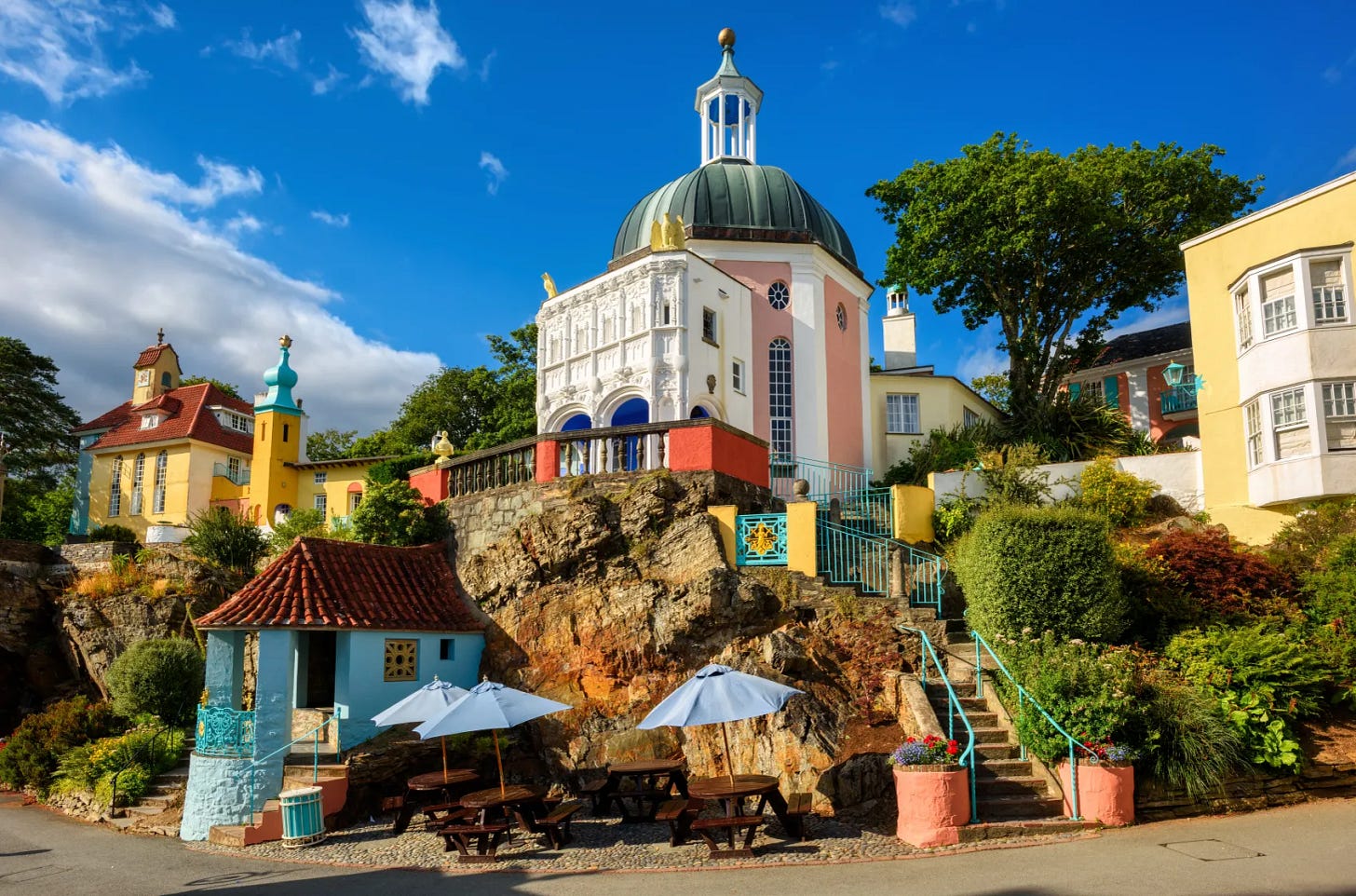
Area for a weekend trip: The Lake District
Place in the world you most want to visit next: I’m open to many different options!
You can purchase a copy of The Heart Decided to Move here and follow Melanie on Substack at “Melanie Bell Writes.”


